by Michael Liss
It is more proper that law should govern than any one of the citizens. —Aristotle, Politics
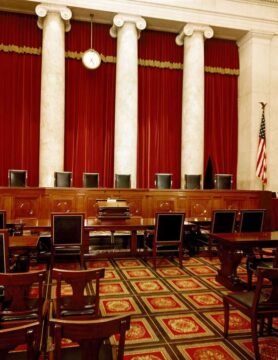
Aristotle was an optimist. Try to visualize an old Greek guy in a himation as a talking head on one of the Sunday shows. He’s never getting an invite to the White House—and it’s not just because of the clothes. Limits on an American President? This American President?
It is grim out there if you are a Democrat. The House, gone; Senate, gone; White House, so far away the distance is measured in light years. SCOTUS, nauseatingly gone. Day after day, Trump, with the cunning of an outlaw biker President, uses his power to taunt, punish and utterly dominate anyone who had or has the temerity to oppose him. Based on the number of prominent people and institutions that have knelt before him, he’s darn good at it. He’s also darn good at speaking to his supporters, and particularly skilled at keeping his fellow Republicans in line. Trump speaks fluent Trump, and Republicans, increasingly, are learning repeatable, debate-ready whole paragraphs of Trumpiness to be used in almost any circumstance. It’s a “Newspeak” modernized from 1984, and it works. People understand it. They react to it viscerally.
How about Democrats? With some notable exceptions, they mostly speak Esperanto. Excellent at cocktail parties with your photos of the Prado (“The Goyas were amazing!”), but not all that useful for everyday conversation.
Full stop. I am not going on an extended “TDS” rant, or its post-November 2024 variant of perpetual Democratic self-flagellation. Newspeak is also a definite no. Let’s talk about power in our system, the extent and implications of it, how it’s expressed and constrained, and the political application of it. In short, let’s channel our inner Aristotle and survey the role of the Rule of Law in contemporary politics.
Perhaps it is best to state the obvious at the beginning: What role? The Rule of Law is a losing argument in recent elections—and it is a losing argument to make to politicians. Maybe that will change, maybe it’s a temporary phenomenon of the Trump Era, maybe it just lacks a compelling spokesperson, but many voters don’t care—and in fact, some cheer its failure.
What is it they are rejecting? What is the Rule of Law? Read more »


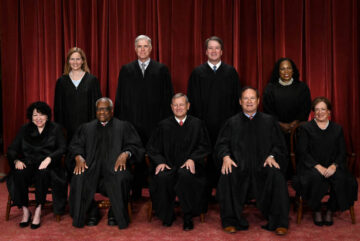
 January 1, 2024. Happy New Year! Just eleven months and five shopping days before Election 2024. Whether you find it comforting that 2024 also happens to contain an extra day might be the best marker of how Political Seasonal Affective Disorder has impacted you. Personally, I haven’t been sleeping particularly well.
January 1, 2024. Happy New Year! Just eleven months and five shopping days before Election 2024. Whether you find it comforting that 2024 also happens to contain an extra day might be the best marker of how Political Seasonal Affective Disorder has impacted you. Personally, I haven’t been sleeping particularly well.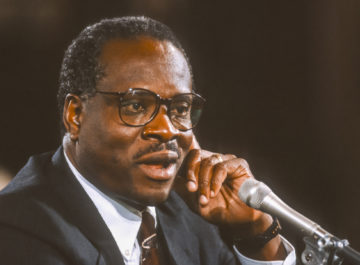
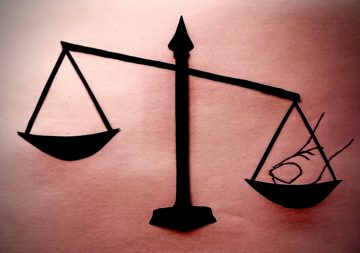



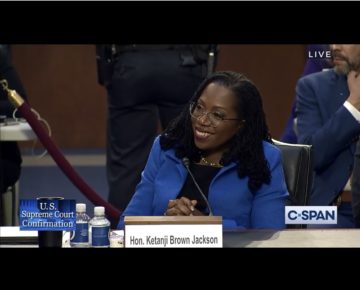 At least Ben was polite about it. The rest of Judge Jackson’s hearing was absolutely awful. If you watched or read or otherwise dared approach the seething caldron of toxicity created by the law firm of Cotton, Cruz, Graham & Hawley (no fee unless a Democrat is smeared) you’ve probably had more than enough, so I’ll try to be brief before getting to more substantive matters.
At least Ben was polite about it. The rest of Judge Jackson’s hearing was absolutely awful. If you watched or read or otherwise dared approach the seething caldron of toxicity created by the law firm of Cotton, Cruz, Graham & Hawley (no fee unless a Democrat is smeared) you’ve probably had more than enough, so I’ll try to be brief before getting to more substantive matters.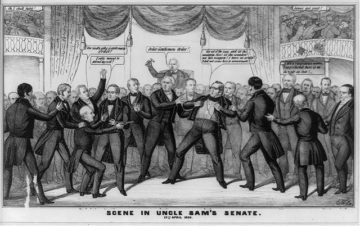
 It’s my oldest memory. I am three, standing harnessed between my parents, in a brand-new two-seater 1959 Jaguar convertible roadster. We are on an empty gravel road someplace in Virginia and my Dad decides to let his new baby fly. I can see In front of me the windshield and, below, a gray leather dashboard that has two things of great interest…a speedometer and a tachometer. The motor hmmmmmms as he takes the car through the forward gears, the tachometer first rising and then falling, the speed increasing. The big whitewall tires are crunching the rough road; cinders are flying; we hit 60 MPH, then 70, then 80; and I’m clapping my hands and piping out “Faster, Daddy! Faster!” My mom goes from worried to furious “Slow down, Ernie, slow down!” As he passes 90, I look down for a moment and she’s slapping her yellow shorts. I peek at the rearview mirror and see a huge cloud of dust. 95, 100, and finally 105. Then without warning, and without using the brakes, he starts to slow, gradually downshifting; the speedometer and tachometer fall; and that’s where my memory ends.
It’s my oldest memory. I am three, standing harnessed between my parents, in a brand-new two-seater 1959 Jaguar convertible roadster. We are on an empty gravel road someplace in Virginia and my Dad decides to let his new baby fly. I can see In front of me the windshield and, below, a gray leather dashboard that has two things of great interest…a speedometer and a tachometer. The motor hmmmmmms as he takes the car through the forward gears, the tachometer first rising and then falling, the speed increasing. The big whitewall tires are crunching the rough road; cinders are flying; we hit 60 MPH, then 70, then 80; and I’m clapping my hands and piping out “Faster, Daddy! Faster!” My mom goes from worried to furious “Slow down, Ernie, slow down!” As he passes 90, I look down for a moment and she’s slapping her yellow shorts. I peek at the rearview mirror and see a huge cloud of dust. 95, 100, and finally 105. Then without warning, and without using the brakes, he starts to slow, gradually downshifting; the speedometer and tachometer fall; and that’s where my memory ends.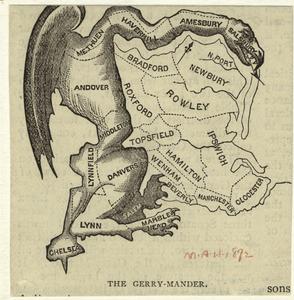 The Supreme Court doesn’t play politics.
The Supreme Court doesn’t play politics.